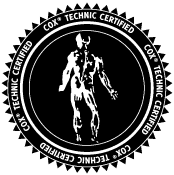Richmond Chiropractic Help for Persistent Pain After Back Surgery
No longer the ‘desired’ descriptor for back pain that lingers following a back surgery that was supposed to ease it, failed back surgery syndrome has new names like ‘post-surgical continued pain’ and ‘persistent spinal pain syndrome’. Whatever its name, if you have experienced back surgery and still have back pain, you know how the pain can take over your life, day and night. For many, this means not getting a good night’s rest, which can result in more fatigue and lack of productivity throughout the day. Luckily, there is hope for those who have persistent spinal pain syndrome (PSPS) after back surgery. New studies have demonstrated that using chiropractic spinal manipulation and even auricular acupressure can effectively reduce back pain and enhance sleep quality.
WHAT IS PSPS - Persistent Spinal Pain Syndrome?
PSPS is described as persistent, new, or recurrent low back with or without lower extremity (radicular pain for 10%-40% of patients) pain after at least one or more back surgeries. It is most common in lumbar spine surgery and deemed ‘chronic’ at 3-months after spine surgery because of the speed at which neuropathic pain sets in. (1) Johnson Chiropractic has gentle, safe, alleviating treatment for post-back-surgery patients.
HOW DOES CHIROPRACTIC SPINAL MANIPULATION HELP?
Johnson Chiropractic implements evidence-based, well-researched chiropractic technique, Cox® Technic. A chiropractic study related the outcomes of 32 cases of post-surgical continued lumbar spine pain after back surgery who were managed with (Cox®) flexion distraction spinal manipulation and mobilization. Relief was rated by numerical pain scale scores (0/no pain to 10/worst pain) and dropped 4.1 out of 10 in a mean number of 14 treatments. Patients who had back surgeries that blended surgical types (like discectomy with fusion or laminectory) decreased even more with 5.7 out of 10. (2) An additional study of 69 cases treated with (Cox®) flexion distraction documented that 81% of patients responded with more than 50% relief of pain at the end of care (mean: 49 days, 11 treatments). At 2-years’ follow-up, 78.6% still experienced their pain relief. Mean relief of pain at the finish of the treatment period was 71.6% and 70% at 2-year follow-up. (3) Listen to this PODCAST with Dr. Byron Folwell on The Back Doctors Podcast with Dr. Michael Johnson as he describes The Cox® Technic System of Spinal Pain Management for post-back-surgery-continued back pain patients.
A HELPFUL ADJUNCTIVE APPROACH: WHAT IS AURICULAR ACUPRESSURE?
Johnson Chiropractic appreciates effective non-surgical means to elevate the positive relief outcome. Auricular acupressure is such an approach in which pressure is applied to particular points on the ear. It has been used in traditional Chinese medicine for a long time, but recently researchers have started evaluating its potential as a form of treatment for PSPS patients. A Korean study revealed that auricular acupressure reduced both pain and neurological symptoms of PSPS. Researchers described it as an effective, safe, cost-effective, non-invasive intervention that can improve pain, neuropathy, and sleep in PSPS patients. (1) Well, you can’t go wrong with those outcomes! Richmond post back surgery continued pain patients would surely appreciate them. Another study showed that auricular acupressure was effective in lowering pain and improving the sleep of elderly osteoarthritic persons living in nursing homes. (4) Regardless of age, we all could use better sleep when having pain.
CONTACT Johnson Chiropractic
Back pain after back surgery can be frustrating, but it doesn’t have to keep you from sleeping or trouble you as much. If you are dealing with post-surgical back pain or poor sleep quality due to PSPS, schedule your Richmond chiropractic appointment with Johnson Chiropractic today to explore how chiropractic can help you!

